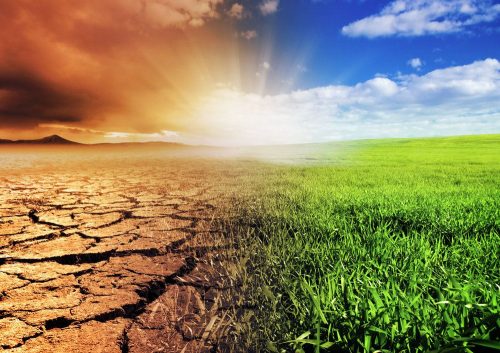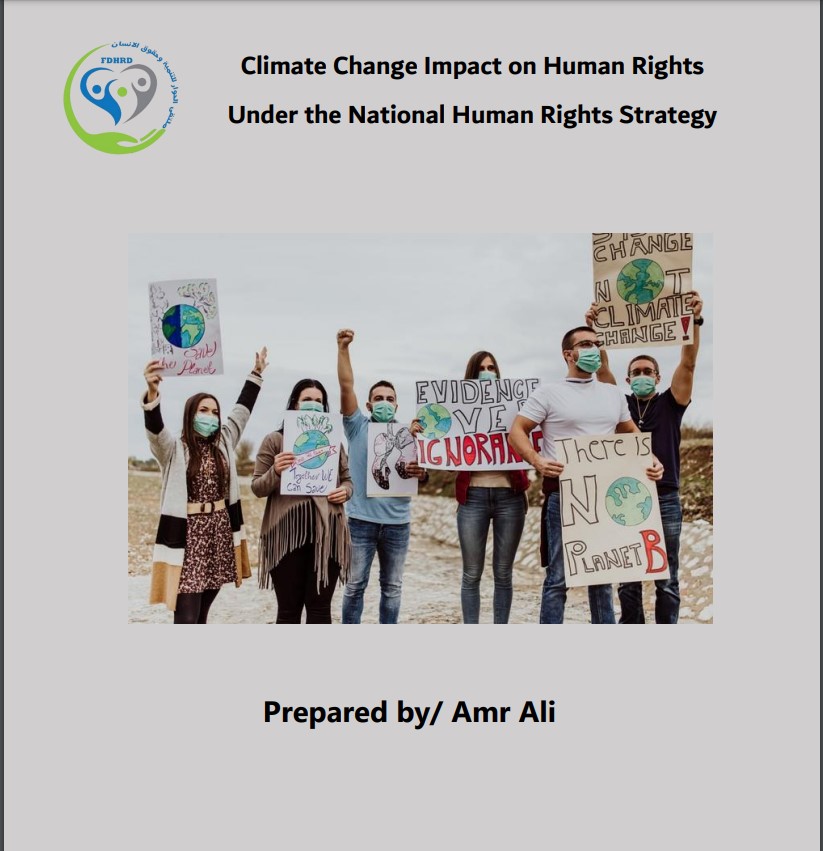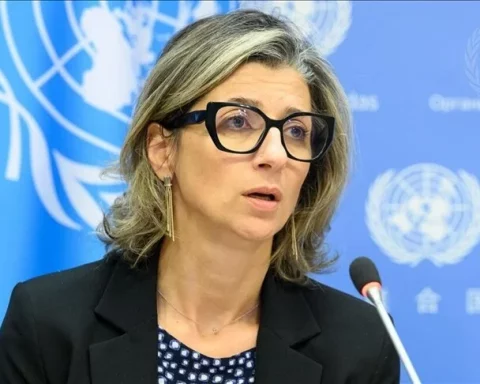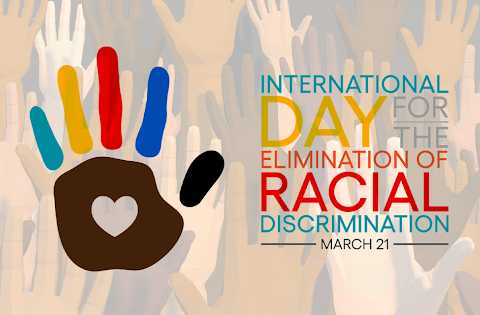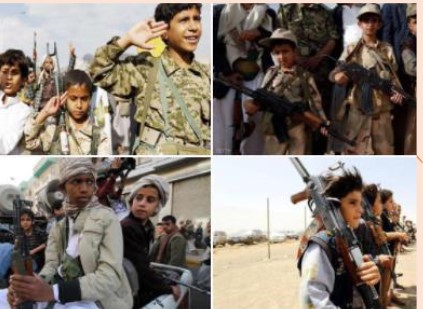Press Release
………………………………………………………
Today, Sunday, November 28, 2021, the Studies and Research Unit of the Dialogue Forum for Development and Human Rights issued a report entitled: (Climate Change Impact on Human Rights under the National Human Rights Strategy).
The report emphasized that climate change is one of the issues that have been at the forefront of global attention for several years, and to this day experts warn of rising temperatures, which will lead to higher sea levels. Despite the clear threat of climate change to the world as a whole, relatively little has been done to address the issue even in the face of several warnings that the planet is approaching a “point of no return”.
The report addressed a number of themes, most notably:
First: Climate change and its consequences
1- What is climate change? What causes it?
The report defines climate change as long-term shifts in temperature and weather patterns. These shifts can occur naturally, but human activities are the main cause of climate change, primarily due to the burning of fossil fuels (such as coal, oil and gas), which produce gases. Global warming such as carbon dioxide and methane. 2010-2020 was the hottest decade in history so far as the average global temperature was 1.1°C above pre-industrial levels in 2019.
2- Inequality in cost sharing
The most distressing aspect of climate change is that it represents the massive inequalities that exist in the world. Marginalized peoples socially, economically, culturally, politically, institutionally or otherwise are particularly vulnerable to the consequences of climate change and also to some adaptation and mitigation responses.
In 2019 for example, among the top ten countries most affected by climate change, only one country (Japan) was considered a developed country as it ranked 19th in the Human Development Index in 2020 and the fourth most affected by climate change due to its being an island.
The report stressed that the African continent faces greater risks from climate change, and it is estimated that by 2030, nearly 118 million people in extreme poverty on the continent will be exposed to drought, floods and extreme heat, which will hinder progress towards poverty alleviation and growth.
3- Effects of climate change on the environment
Climate change affects societies because it affects the ecosystems and natural resources on which they depend for their livelihoods. The report mentioned that the effects of climate change, for example, but not limited to, are: (fresh water sources, terrestrial ecosystems, coastal and low-lying systems, ocean systems, food security and production systems).
Second: Human rights affected by climate change
Climate change is just as much a human rights issue as it is an environmental issue, because it affects even the most basic rights. Human rights are universal and inalienable rights to which all human beings are entitled. All the mentioned effects of climate change have either direct or indirect effects on human rights, and these rights are:
1- Right to life: Climate change is killing through drought, increasing heat, expanding disease vectors and countless other ways. Climate change is responsible for about 400,000 deaths annually, and this number is expected to rise to 700,000 by 2030.
2- The right to self-determination: the inhabitants of small islands, coastal areas and areas below sea level are the most vulnerable to losing this right as they face the possibility of losing their homes to rising sea levels and therefore will not be able to enjoy this right.
3- Right to development: Climate change could lose 18% of GDP to the global economy if no action is taken to combat it, and developing countries could also find themselves in a position to shift resources away from the education, health and agricultural sectors to address climate change and its impacts.
4- The right to food: Climate change poses a threat to food security as it causes crop failures and decreased fisheries yields due to ecological changes. Africa has been hardest hit when it comes to food production. The effects of climate change in Africa have increased the frequency and severity of droughts in some areas, and reduced animal growth rates and productivity in pastoral systems.
5- Right to Water and Sanitation: Climate change threatens to reduce the amount of surface water, leading to water shortages and increased competition for water. Also, more than 20% of the world’s river basins experienced either rapid increases or decreases in their surface water area in 2020.
6- Right to health: Climate change is likely to increase health problems such as respiratory diseases due to increased air pollution and malnutrition due to food shortages caused by climate change. Once again, it is the most vulnerable and least developed countries that will suffer the most damage due to limited or no access to health care.
7- Right to housing: This right is affected by climate change as extreme weather and storms destroy homes. Moreover, extreme changes in meteorology may render some areas completely uninhabitable resulting in population displacement, potential massive humanitarian crises and the creation of more refugees.
8- Right to Education: Children living in areas affected by climate change will not be able to afford education because they will have to work to support their families. In addition, countries may have to spend resources for education on relief efforts to combat the effects of climate change.
Third: The Egyptian National Strategy for Human Rights and Climate Change
The report stated that the strategy took into account the issue of climate change as a human rights issue, which refers to the protection of the environment as an issue that needs to be addressed within the framework of upholding the right to health within the framework of the second axis of the national strategy.
The national strategy has identified the following elements as already addressing the issue of climate change to be included in the strategy: pollution reduction; Promote the sound management of hazardous materials and waste, including the safe disposal of waste; maintaining ecological balance and biodiversity; development of national reserves; improving the environment in the villages most in need; development and use of renewable energy sources.
However, the strategy also identified several challenges that must be overcome to achieve these goals, namely: the lack of sound sustainable management of natural resources and assets, the penalties imposed on environmental law, related laws that do not fit with the intended goal of deterrence, and the absence of policies to reduce pollution, Weak awareness and community participation in preserving the environment, the need to develop a system for the disposal of hazardous waste, and the limited sources of funding available to achieve effective management of natural reserves and biodiversity components.
The report concluded that the issue of climate change is a human rights issue that affects us all, with the most basic rights at stake. Climate change may not affect all of us in the same way, but it is the most vulnerable who can be most affected through no fault of their own. Even worse, those who will be hurt the most are not being listened to as they should. This necessitates intensifying international efforts to address climate change.

